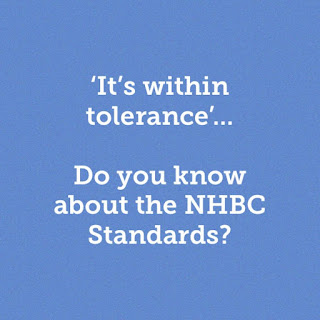Featured
- Get link
- Other Apps
Remortgaging as our fixed term mortgage ends soon
An update on the blog about our remortgage experience.
What does it mean to remortgage?
A remortgage is when you switch your current mortgage deal on your property to a new mortgage deal. It can be with a new lender or your existing lender.
Why are we remortgaging?
Our current mortgage is a three year fixed deal with Barclays as their mortgage rates were the best deal we could find at the time. I can’t believe how time has flown by and now we have to think about remortgaging.
Based on our mortgage paperwork, once the fixed rate period ends, we would be on a variable interest rate. The variable rate that we would be charged is calculated as 3.49% above the Bank of England Base Rate.
On 3rd November, the Bank of England announced that the Base Rate is now 3%. As an example, if our fixed rate period has ended, then the new interest rate would be 3.49% + 3% = 6.49%.
Tip! If you are also on a fixed rate mortgage, remember to check your mortgage paperwork so you are aware what happens to the interest rate after the fixed rate period ends.
By remortgaging, we wanted to fix the interest rate over the next five years so we don’t have to worry about the monthly mortgage payment amount changing over that period if the Bank of England (BofE) base rate changes.
For more information on the impact of BofE base rate increases, see the blog post named What does rising interest rates mean for mortgages?
Halifax also has a useful webpage explaining the impact of bank rate changes on Halifax mortgages and I thought the video was helpful! It’s worth checking to see if your lender has a similar webpage.
On a variable rate mortgage that is linked to the BofE base rate, there would be an impact from the base rate changes.
We have seen a number of bank rate increases over the past year. In Oct ’21, the bank rate was only 0.1%.
Source: Bank of England
BBC News had an insightful article about the UK interest rate: How high could they go?
It’s worth a read.
Here is a summary the steps we have taken so far:
- Read online resources about how to remortgage and things to consider
- Researched what mortgage deals were available and how long the mortgage offer would last
- Applied directly with the bank
- Agreed date for property valuation
- Received a mortgage offer
- Completed forms and submitted them to the conveyancer
I have written in more detail below about each of the steps we have taken.
1. Read online resources about how to remortgage and things to consider
Having to remortgage in the current economic conditions with a rising BofE base rate has been stressful, especially since it’s our first time. I spent quite a lot of time on the internet looking at various websites to see what we needed to consider and do when remortgaging.
How long before a fixed rate mortgage ends can I remortgage?
I was reading a post named Should you remortgage? on moneysavingexpert.com and it suggested to start looking at mortgage deals three to six months before the current mortgage deal ends. At this point, I couldn’t even remember when our fixed rate period ends!
After digging out the mortgage paperwork, I found out that we had around 8 months before our fixed rate period ends (January 2023).
Tip! Put reminders in the diary for when to start looking at mortgage deals and when the mortgage deal ends. Life can get busy and this will help make sure you don’t forget!
My first reminder in the calendar to starting thinking remortgaging was six months before our fixed rate period ends.
There was some uncertainty for us as our land registry application had not yet completed so we started looking into the remortgaging process earlier to find information on whether this would impact us remortgaging with another lender.
If this impacts you too, see the blog post named: Is your Land Registry application complete?
Thankfully, the land registry application was completed in late August!
2. Researched what mortgage deals were available and how long the mortgage offer would last
I also called L&C for advice on the above and asked about how long mortgage offers are valid for. I chose L&C as it’s free. The advisor explained that some mortgage offers are valid for six months.
With this information, we started looking at mortgage deals in the hope that we could secure a mortgage offer now, valid until our current fixed rate period ends. We wanted to secure a deal now as we were worried that if we waited a few more months, the BofE rate would continue to go up and mortgage interest rates might increase too.
We found the moneysavingexpert.com Mortgage Best Buys comparison table really useful when looking for mortgage deals. We also did a second check on another comparison website too, just in case they had different deals.
Tip! Don’t forget to research what the value of your property is ahead of using the comparison websites as you will need to input that into the comparison websites.
3. Applied directly with the bank
Once we found the deal we wanted, we checked on the lender website how long the mortgage offer would last. Once it was confirmed that the offer would last until our current fixed rate period ended, we applied directly with the lender.
Please note, applying directly is our personal approach based on our circumstances as we had a clear idea of what we wanted so we didn’t use a mortgage broker. This isn’t an approach suitable for everyone, so please speak with a mortgage broker/financial advisor to discuss what is best for you. Just thought it would be helpful to share our experience.
We have used a mortgage broker before and preferred to apply directly. See the below blog posts for our thoughts on applying directly and using a broker.
Mortgages: using a broker or applying directly to a lender
Applying for a mortgage through a broker
Our thoughts on using a mortgage broker and some tips!
Applying for a mortgage directly
I later found this moneysavingexpert.com getting ready to remortgage article which talks about what we tried to do - hedge against rising rates by securing a mortgage offer before our current fixed rate ended. It’s worth a read as it talks about the risks too.
The mortgage application was straight forward and the lender arranged for a company to value the property.
4. Agreed date for property valuation
We booked in the property valuation for the following week and within days, we had the outcome. We found out that the property valuation was lower than the value we had put in the application. This meant that the loan-to-value (LTV) based on the valuation was higher than the mortgage product requirements so we couldn’t apply for it.
We would either have to put in a higher deposit to secure that specific rate or would need to choose a different mortgage product. A higher LTV meant that the interest rate would be higher.
This was such a shock to us. When we applied, we ended up putting the purchase price of the property as it was difficult to estimate the current value of the property. I don’t think Hubby and I expected that it could be a down valuation so when we found it, we were shocked and upset.
After exploring our options in terms of next steps, we decided to go back to the comparison websites to see the best deals available based on the updated LTV.
The lender we had chosen to remortgage with actually had the best deal in the higher LTV band too so we ended up using the same lender. This was a relief as we were worried that if we applied to a different lender, there would be another hard credit check which might harm our credit scores.
5. Received a mortgage offer
Shortly after, we received our mortgage offer which is valid for six months.
6. Completed forms and submitted them to the conveyancer
For the mortgage we applied for, the lender pays for the legal fees so their conveyancer reached out to us to fill in various forms in preparation for switching the mortgages when our fixed rate period ends.
We made it very clear to the conveyancer that we needed to switch after the fixed rate period ends to prevent incurring the early repayment charges.
Now everything is ready for January, so hopefully it will all go smoothly.
Other useful resources:
Barclays: Base rate changes and mortgages
You may also be interested in:
Our remortgage experience - Part 2
- Get link
- Other Apps
Comments
Popular Posts
Download your NHBC certificate in three easy steps
- Get link
- Other Apps
‘It’s within tolerance’...do you know about the NHBC Standards?
- Get link
- Other Apps






nice
ReplyDelete